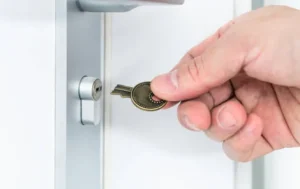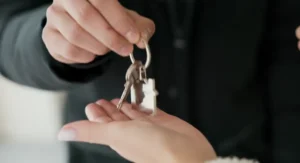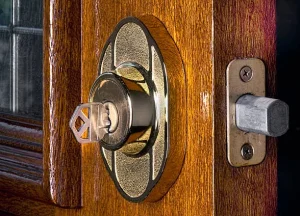How Often Should You Change Your Locks? (And Why It Matters)
Think Your Locks Are Fine? Here’s When to Replace Them and Why Waiting Could Be a Risk
Most homeowners and property managers don’t think about their locks until there’s a problem. But lock security isn’t just about keeping intruders out — it’s also about control. Who has keys? Are your locks still secure? Has technology or wear compromised your safety?
Changing your locks isn’t something you do every year, but there are key moments when it’s the smartest, safest move you can make.
Let’s break down how often you should change your locks, the most common reasons, and how to know whether a rekey or full replacement is the better option.

How Often Should You Really Change Your Locks?
There’s no one-size-fits-all answer, but here’s a general guideline:
Situation |
After moving into a new home |
After a break-in or attempted break-in |
Every 5–7 years of regular use |
After staff turnover (for business owners) |
If keys are lost or stolen |
Following divorce, eviction, or tenant change |
If lock is damaged, sticking, or rusted |
Recommended Action |
Change or rekey locks |
Replace with high-security locks |
Inspect and consider rekeying |
Rekey or upgrade |
Rekey immediately |
Rekey or replace locks |
Full replacement |
Locks don’t come with expiration dates — but key control and physical condition matter more than age.
5 Signs It’s Time to Change Your Locks
Even if nothing dramatic has happened, your locks might still need attention. Here’s what to watch for:
Past tenants, contractors, or neighbors may still have access.
Wear and tear can lead to mechanical failure.
Convenience can create a security weak point.
Internal parts may be worn, corroded, or misaligned.
Open houses mean dozens of strangers may have accessed your space.
Rekeying vs Replacing: Which One Do You Need?
| Feature | Rekeying | Replacing Locks |
|---|---|---|
| Cost | More affordable | Higher cost (hardware + labor) |
| Hardware changes | No — same lock, new key combo | Yes — completely new lock |
| When it's ideal | Lost keys, tenant turnover | Break-in, old/damaged hardware |
| Key control reset | Yes | Yes |
| Security upgrade | No | Yes (pick/drill resistant locks) |
Rekeying involves adjusting the lock’s internal pins so that old keys no longer work. It’s fast, cost-effective, and great for basic security resets.
Replacing is necessary if the lock is damaged, outdated, or you want higher security features (like anti-bump or smart lock technology).
For Businesses: Don’t Wait for a Security Issue
If you own or manage a commercial property, you should:
- Change locks or rekey after employee turnover
- Schedule regular security audits every 12–18 months
- Consider master key systems or digital access for flexibility
Frequently Asked Questions
How often should landlords change locks between tenants?
Ideally, after every move-out. It protects both you and the incoming tenant by resetting access.
Is rekeying just as safe as replacing?
Yes, as long as the lock hardware is in good shape. It ensures old keys won’t work anymore.
Should I change locks after buying a home if the seller gave me all the keys?
Yes. There’s no way to verify how many copies were made or who else has access.
Are smart locks a better alternative to traditional ones?
Smart locks offer flexible access and tracking, but traditional high-security locks still provide excellent protection. It depends on your lifestyle and property type.
Don’t Wait for a Break-In to Rethink Your Locks
Changing or rekeying your locks isn’t just about reacting to problems — it’s about staying ahead of them. Whether you just moved, had a security concern, or haven’t thought about your locks in years, now might be the right time for a professional evaluation.
📞 Call us today at +16479558111 to book a lock inspection or rekey service. Your security starts with control over who has access to your space.





